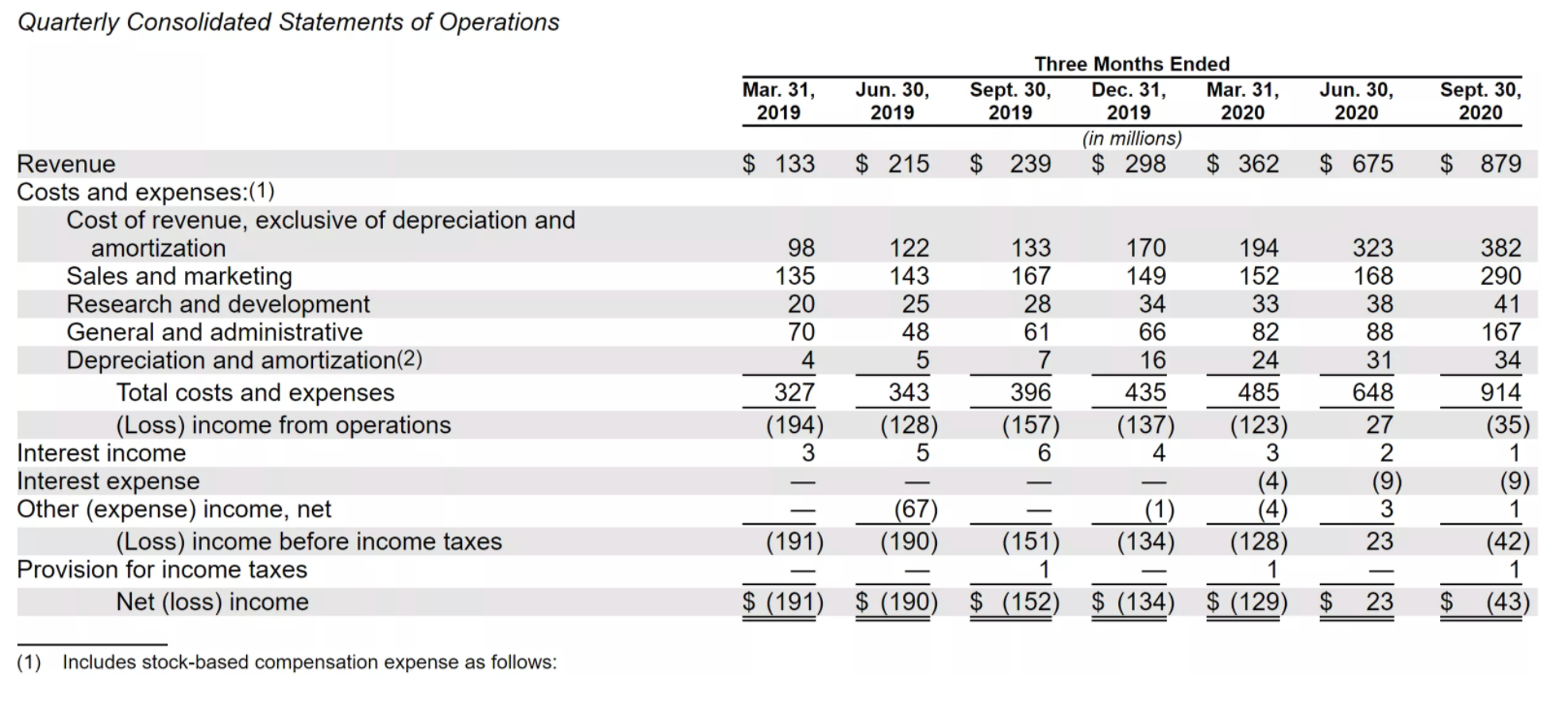After clearly waiting for Proposition 22 to pass in California, DoorDash has put in motion plans to go public after filing papers that signaled its intent to do so on Friday.
2020's been a banner year for app-based delivery companies. For example: Uber Eats has seen record-breaking earnings for the company this year (despite the fact that the model still isn't profitable). GrubHub reported $459M in revenue during Q2 2020, a 41% increase from Q2 2019 — adding that the pandemic is a "permanent catalyst" for the company. So it's little wonder why DoorDash — which has already doubled its revenue from the prior year in 2020 — is now finally planning to go public amid booming business.

As reported by KTVU, The SF-based company took the first steps to becoming public on Friday when it indexed documents which hinted at that plan. Talks of the food delivery company going public have been circulating around for well over a year, but DoorDash now seems sure on pushing forward with an IPO — in part because of how the company fits into the new "wave of demand for convenience."
“Technology has changed consumer behavior and driven a wave of demand for convenience,” the company said in a statement to its prospectus, according to the news outlet. “Recent events have further accelerated these trends, pulling the future of e-commerce forward for businesses large and small.”
In the first nine months of 2020, DoorDash's revenue more than doubled from $885M in 2019 to $1.9B — an almost seven-fold increase from its 2018 earnings of $291M. Nonetheless, DoorDash (like Uber Eats) has lost money each year since it was founded in 2013; the company also warned would-be investors losses would likely continue as the company increased spending to expand.
And yes: it's grossly evident that DoorDash waited to start the IPO process until the fate of California’s Proposition 22 was cemented, according to Wedbush Securities analyst Daniel Ives.
“That would have been an uphill battle had Prop 22 not passed in California,” Ives said to KTVU. “That puts a dark cloud in the rearview mirror and really opens the spigot for investor appetite.”
Now passed, Proposition 22 — which, at its core, allows app-based delivery companies to classify drivers as "independent contractors" instead of staffed employees — will allow DoorDash, as well as companies like Uber Eats and GrubHub, to forego giving costly employee benefits to drivers. However, the companies did clear an exception that will give limited benefits, such as health care subsidies, to independent contractors who work at least 25hrs a week.
Had Proposition 22 not passed, companies like Uber and Lyft cited that they'd likely either have to shut down operations in the state or heavily increase service fees on their products. (For a good while, like app-based companies were also considering evolving certain franchise models to side-step classifying its drivers as staff — and thus continue treating them as contractors.)

Ives, as well as other industry analysts, have suggested that DoorDash could become profitable by 2021. And that's likely because of how the pandemic has catapulted sales.
“No industry has benefited more than food delivery,” Ives added. “In a horrific backdrop, a silver lining has been, from an economic perspective, it’s been a huge positive for these workers, drivers, and restaurants that could utilize companies like DoorDash in this environment.”
Court filings from DoorDash have not made clear how many shares it will sell or how much money it hopes to generate by going public.
According to Reuters, grocery-focused Instacart has also recently hinted at going public after picking Goldman Sachs to lead a 2021 IPO at upwards of a $30B evaluation.
You can read the complete IPO filing from DoorDash, here.
Related: DoorDash, Postmates, and UberEats Have Reportedly All Discussed Mergers
Uber and Lyft Get Their Wish, Prop 22 Passes
Image: A view of general atmosphere at the Doordash booth at 'Night Market' presented by The Los Angeles Times on May 08, 2019 in Los Angeles, California. (Courtesy of Tibrina Hobson/Getty Images for Los Angeles Times Food Bowl)

